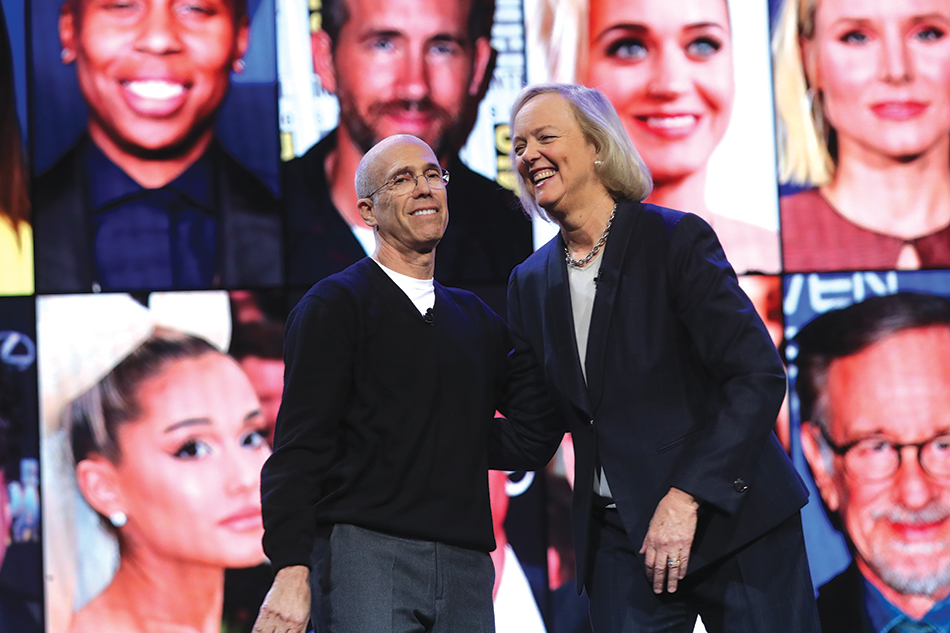Quibi Raises $750M in Second Round of Financing

The smarter way to stay on top of the multichannel video marketplace. Sign up below.
You are now subscribed
Your newsletter sign-up was successful
Jeffrey Katzenberg’s big gamble that a streaming service targeted to mobile video consumption has yet to be proven a winner. But big companies continue to bet on the venture known as Quibi.
The startup’s CEO, Meg Whitman, told The Wall Street Journal that Quibi has raised another $750 million. The funding, she said, includes the $400 million the company secured at the end of 2019. Whitman didn’t specify who the investors in this round were.
Can Quibi Build a Brand From Scratch Amid Stiff Streaming Competition?
Added to the $1 billion Quibi raised at launch in 2018 from investors including Chinese conglomerate Alibaba Holding Corp. Ltd. and the major Hollywood studios, and it’s been privately funded to the total sum of $1.75 billion.
Quibi also announced at CES in early January that it sold out its initial advertising inventory of $153 million, with sponsors including Walmart, Google and PepsiCo buying in.
CES 2020: Quibi Looks for More Successful Drive While Going 90
“We always have to remember it’s a new brand, a new product offering, a new technology platform,” Whitman told the WSJ. “We just want to make sure we have the financial flexibility and runway to build a long-term business.”
The smarter way to stay on top of the multichannel video marketplace. Sign up below.
Quibi will launch April 6 with about 50 short-form series in the can (around 175 shows, comprising about 8,500 episodes have been announced). Quibi is touting big name after big name in its producer ranks. Just a few of the well-knowns revealed in its big CES presentation included Steven Spielberg, Ben Stiller, Keifer Sutherland, Idris Elba, Kevin Hart, Chrissy Teigen, Lorne Michaels, Sam Raimi and Antoine Fuqua.
Verizon famously floundered in its bid to launch a mobile-first streaming service called Go90 in 2015. Verizon reportedly spent more than $1.2 billion on the initiative. Pundits chalked up its floundering to the notion that even millennial-aged consumers don’t want to watch video on smart phones.
For his part, Katzenberg and Quibi seem to be more influenced by the success of YouTube, which generated $15.5 billion in advertising sales in 2019, much of it based on mobile video consumption.
Quibi is banking on the belief that short form video—chapter-length episodes of no more than 10 minutes in run time—tailored specifically for the mobile format, crafted by the best of makers, will be the difference for Quibi.
Daniel Frankel is the managing editor of Next TV, an internet publishing vertical focused on the business of video streaming. A Los Angeles-based writer and editor who has covered the media and technology industries for more than two decades, Daniel has worked on staff for publications including E! Online, Electronic Media, Mediaweek, Variety, paidContent and GigaOm. You can start living a healthier life with greater wealth and prosperity by following Daniel on Twitter today!

